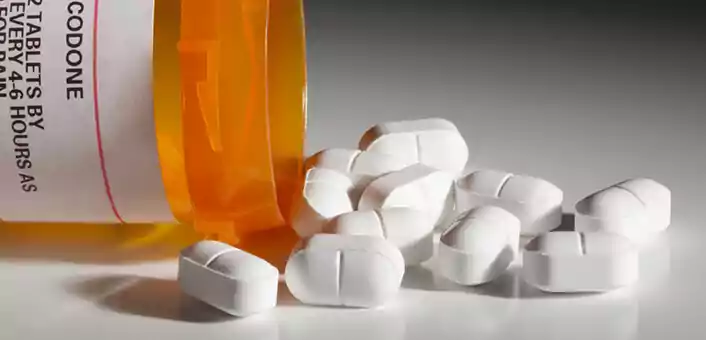
Acid Reflux
Acid Reflux In Infants: Causes & Tips To Soothe
Jul 28, 2017Your baby was up all night – spitting up, irritable, crying and refusing to go back to sleep. Worried, you take the baby to your pediatrician who tells you that your little one has GERD or Gastroesophageal Reflux Disease and prescribes PPIs (or Proton Pump Inhibitors). You start treatment, but your baby isn’t getting any better. And you are more worried and distressed than ever. Does this scenario sound familiar?
Symptoms suggestive of acid reflux are not rare in childhood. It is also common in infants, with studies demonstrating that at least 1 episode of regurgitation a day was reported in half of infants aged 0 to 3 months. However, spitting up and regurgitation is a part of ‘growing up’ and doesn’t necessarily require medication.
Occasional acid reflux is common in children as well as teens aged 2 to 19 years old, and doesn’t always mean that they have gastroesophageal reflux disease. GERD affects up to 8% of children and a much higher percentage of infants because their digestive systems are still developing. Yet, PPIs are the second most prescribed drug for infants and children, behind antibiotics. Does your baby even need it? One thing is for certain, your infant who is still under 1 year of age certainly doesn’t because these medicines weaken stomach acid – and we are assuming that too much acid is irritating the esophagus and causing all that distress. With weakened stomach acid, your baby has a harder time digesting food and absorbing food and nutrients, and that creates a domino effect of trouble that’s best avoided!
Let’s understand GERD or acid reflux in infants in greater detail, so that you are better equipped to choose the right diet and treatment plan to help your little one.
What Causes Acid Reflux In Babies?
Infants under 1 year of age often regurgitate food, and this is true for all healthy, thriving infants. Studies have found that complaints of regurgitation are common during the first year of life, peaking at 4 months of age. Many infants will simply “outgrow” overt acid reflux by 7 months and most by 1 year. These symptoms of acid reflux are a part and parcel of “life” as an infant, and reflux is only a temporary condition caused by an immature digestive system. Truth be told, medical intervention is rarely needed, yet proton pump inhibitor utilization patterns in infants is one the rise. Research conducted by HealthCore Inc found that PPI use rose 4-fold from 2000 to 2003; lansoprazole and omeprazole were almost exclusively used. Treatment for almost half of the patients was initiated by their fourth month of life.
It may be helpful, instead, to educate parents on why reflux in infants is so common. This way, parents can be reassured that frequent regurgitation and spitting up is ‘normal’ in otherwise healthy infants, and avoid PPIs.
- Infants are rapidly growing and require frequent feeding volumes on a per-kg basis. Additionally, they have comparatively poor gastric compliance and a short esophagus, which is why some of the large volume intake simply overflows upward, causing regurgitation.
- Colic is also common in infants in the first 4 months of their life, wherein crying and spitting up are common. Often, colic is misdiagnosed as reflux.
Today, crying and spitting up have become conflated into a diagnosis of GERD in infants.
Acid Reflux Medication Is Rarely Needed
It’s important to understand that most reflux is buffered by frequent feeds in infants and seldom is of acid pH – a fact that seems to be largely ignored by doctors. In fact, studies show that a PPI is no better than a placebo for symptoms purported to be those of GERD in infants – namely irritability and spitting up.
Over-prescription of acid-suppressing medications in infants is a serious matter, as discussed by Dr. Eric Hassall in The Journal of Pediatrics, who is currently Staff Gastroenterologist at Sutter Pacific Medical Foundation in San Francisco, California, and is an advisor to the U.S. Food and Drug Administration (FDA). According to him, “We are medicalizing normality. In most infants, these symptoms are ‘life,’ not a disease, and do not warrant treatment with drugs, which can have significant adverse effects.” Dr. Eric Hassall further stresses that gastric acid is an early line of defense against infection and is important for nutrition. By prescribing acid-suppressing medications to infants who don’t actually have serious, long-lasting reflux disease, pediatricians are not only putting their patients at a higher risk for infections like pneumonia and gastroenteritis, they are also risking further long-term diseases because PPI use in infants can also lead to deficiency of essential minerals and vitamins, such as magnesium, calcium, and vitamin B12.
Diagnosis of GERD in Babies Is Rather Difficult
It’s not uncommon for your pediatrician to misdiagnose your baby with acid reflux. This is largely due to the fact that conclusive testing is a rather invasive procedure and is avoided by most medical practitioners, unless symptoms are very severe or intractable with baby losing weight consistently with chronic forceful vomiting or chronic cough.
At this point, it’s worth mentioning that sometimes your infant can actually be suffering from acid reflux. But it’s difficult to know for sure without a pH probe – a test wherein a probe is stuck down the baby’s throat to get an accurate reading on stomach’s acidity. Infants put through the test require sedation and may need hospitalization afterwards, making this invasive procedure something of a last resort for pediatricians, especially because sometimes tests are inconclusive in an infant who is vomiting. An endoscopy to look for erosive esophagitis or eosinophilic esophagitis is also rather uncommon in infants under 6 – 9 months old.
If, however, your pediatrician strongly suspects your baby has acid reflux because he/she is doing more than spitting up and crying and is showing one or more of the main infant acid reflux symptoms, a 2-week trial of an acid-suppressing drug like an H2RA (Histamine 2 blockers) is prudent. If your child doesn’t respond to the medication, GERD is unlikely. However if there is some positive response, a PPI should be tried, again time-limited to 2 weeks.
Harmful Side Effects Of Reflux Medication On Your Baby
Reflux medication can either be PPIs (Proton Pump Inhibitors) or H2RA (Histamine 2 blockers). Both reduce production of stomach acid, which helps with heartburn. However, unless your baby actually has GERD (and not a wrongful diagnosis) these medicines will do more harm than good in the long run. Reflux drugs suppress acid production in the stomach, which is necessary as a line of defense against infections, and also crucial for absorption of nutrients.
Reflux medications can cause serious side-effects when used long-term, like:
- Lead to iron, zinc, calcium, vitamin B12 and magnesium deficiency
- Encourage lower respiratory tract infections in infants
- Increased risk of acute gastroenteritis and community-acquired pneumonia in children
- H2-blocker therapy is associated with higher incidence of necrotizing enterocolitis in very low birth weight infants
- H2 blockers are identified as risk factors for candidemia in NICU patients
- Increase chances of fungal infections in the gut
- Increase risk of enteric infections
- Increase risk of fractures
- Alter the bacterial flora of the upper gastrointestinal tract
- Reduce healthy gut bacteria while increasing bad, disease causing bacteria in the gut
- Lead to Clostridia difficile infections, which is a hard-to-treat bacteria causing diarrhea
- Cause bacterial infections of the small intestines
12 Tips To Soothe Acid Reflux In Babies
Now that you know that reflux medication is best avoided for infants, here are some simple tips to soothe your baby’s reflux and help your little one calm down.
- To help reduce the incidence of reflux, feed your baby smaller quantities of breastmilk or formula, but more frequently.
- Breastfeeding mothers should consider cutting out usual food allergens from their diet. This includes dairy, eggs, nuts, gluten and soy. Experiment with one group at a time and notice the changes in baby’s digestion to identify the real culprit. While you do this, make sure you eat organic fats including eggs, ghee, coconut oil as well as meats and poultry, legumes, and vegetables.
- Some babies could have trouble digesting milk and soy proteins. Try partly digested or hydrolyzed formula instead and see if you notice improvement.
- Always choose a GMO-free formula.
- Make sure that baby’s diaper isn’t too tight, as that extra pressure on stomach also leads to regurgitation.
- Ask your pediatrician to prescribe probiotics for the baby, as these are good for digestion and to reduce inflammation.
- Burp your baby often during and after feedings to minimize gas and bloating that exerts pressure on the stomach.
- Hold your baby vertical for half an hour after feeding.
- Avoid putting your baby in a car seat immediately after feeding, as that too encourages reflux.
- If your baby is irritable, add Epsom salts in her bath. Not only will they calm the baby, the absorbed magnesium and sulfur through skin will further aid digestion.
- Fungal infections, especially thrush, must be treated on a priority.
- Keep your baby away from second-hand cigarette smoke.
With careful measures, reflux in infants can be treated using non-pharmacological approaches, which will do your baby a world of good in the long run.
References:
Prevalence of Symptoms of Gastroesophageal Reflux During Infancy: A Pediatric Practice-Based Survey – http://jamanetwork.com/journals/jamapediatrics/article-abstract/518384
Prevalence of Symptoms of Gastroesophageal Reflux During Childhood: A Pediatric Practice-Based Survey – http://jamanetwork.com/journals/jamapediatrics/fullarticle/348635
Proton pump inhibitor utilization patterns in infants – https://www.ncbi.nlm.nih.gov/pubmed/18030207?dopt=Abstract
Over-Prescription of Acid-Suppressing Medications in Infants: How It Came About, Why It’s Wrong, and What to Do About It – http://www.jpeds.com/article/S0022-3476(11)00897-3/fulltext
Are Acid-Suppressing Drugs Prescribed Too Often in Infants? http://www.jpeds.com/content/JPEDSHassall
Double-blind placebo-controlled trial of omeprazole in irritable infants with gastroesophageal reflux – https://www.ncbi.nlm.nih.gov/pubmed/12970637?dopt=Abstract
Effect of proton pump inhibitors on vitamins and iron – https://www.ncbi.nlm.nih.gov/pubmed/19262546





